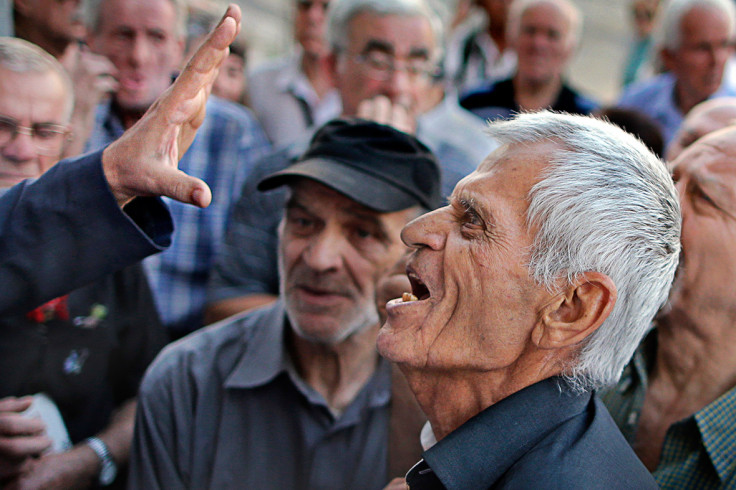Letter from Athens: Greek referendum is a victory for dog whistle politics

Like everyone else in Athens I queue up at the ATM every day to withdraw my €60 (£43, $67) daily allowance, except it isn't really €60 as the machines have run out of €20 notes and now mostly only have fifties, knocking down our daily allowance by a sixth.
Even that is expected to last only until cash runs out which is probably any day now. Bank transfers are available through e-banking but only within the country.
Most people use credit cards, which are exempt from the daily limits, for essential supplies such as food and petrol. All other shopping transactions have effectively ceased. In turn, this is a disaster for small enterprises and state revenues. Without sales there are no taxes to collect.
Most people who voted 'No' do not realize what is about to hit them.
I can tell you that on a more macro level, things are serious. Thousands of civil servants are due to be paid on 12 July but state coffers are empty. On 20 July a payment to the European Central Bank €2.5bn (£1.8bn, $2.8bn) is due.
Dropping out of the eurozone would be a humanitarian disaster. Consider that Greece consumes 3.5 million tonnes of dairy products per year but only produces one million. Likewise, 75% of meat consumption is imported. If and when we leave the eurozone suppliers will require payment in hard currency which Greece surely lacks.
Despite all that, Greece has voted overwhelmingly against accepting the austerity measures. I was expecting a slight victory for the 'No' camp, but the huge majority was a surprise. Given what is at stake some may question the result. Why would so many people vote to ensure more hardship for our country?
For a start, most people who voted 'No' do not realize what is about to hit them. I spoke to a great deal of people in the run up to the poll, on both sides of the divide. I found that while many in the 'Yes' camp knew what they were voting for, those who voted 'No' voted for a range of different reasons.
There were some, of course, who simply wanted to bring down the eurozone, but others just wanted to vote against the old establishment parties, most of which supported the 'Yes' campaign. Others voted out of a sense of national pride, anger, frustration and generally against austerity. Even now, most 'No' voters firmly believe that dropping out of the euro is simply impossible.
I think that the government knew this and exploited it, running a "dog whistle style" campaign which appealed to all these people at the same time. Like a dog whistle, only dogs can hear it, they were using a variety of different whistles to appeal to a whole range of people.
I used to live in the UK and I know that many people over there are looking at this as a victory for democracy or even as a good result for Greece, but I think that people in Britain can often overlook the fundamentals of the situation.
Yes, a referendum is hardly a dictatorial measure but in this case the question the government posed was purposefully misleading. Not only was the question incredibly complicated but it was based on an outdated draft of the agreement under negotiation.
Actually, the sheer number of people who voted 'No' could prove to be a problem for Syriza. Some times strategies can be too successful. With such a margin it will be difficult for the government to manoeuvre. My guess is that it will escalate making a final deal difficult to reach with our European partners. The best way forward will likely be a unity government that can negotiate a better deal with Europe, but that could be difficult given Sunday's result.
Generally, I am pessimistic about the future. I think that Greece is just one step from leaving the euro, which would obviously be a disaster. My sincere hope is that Greece will remain part of the eurozone but I think we are rapidly running out of options.
Vasilios Alevizakos is a political consultant and was director of the political office of former deputy prime minister Evangelos Venizelos until the Syriza government came to power in 2015.
© Copyright IBTimes 2025. All rights reserved.






















